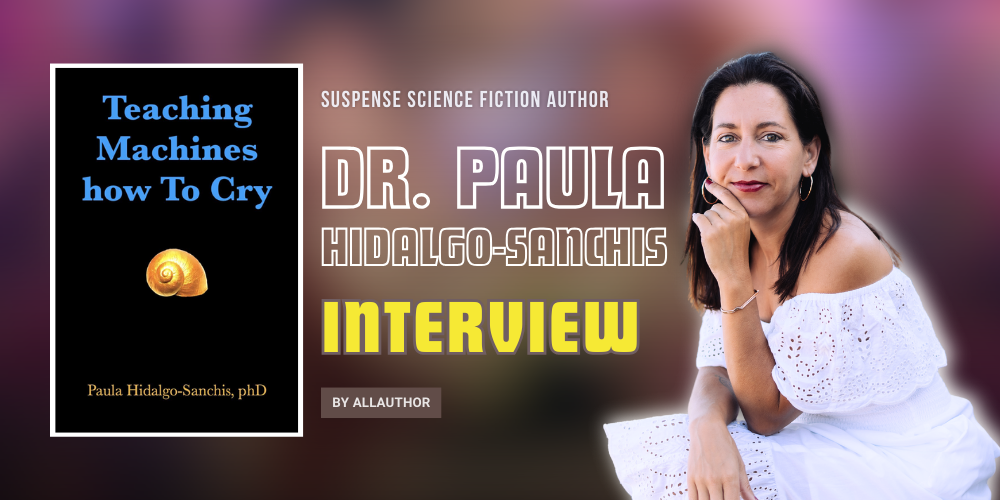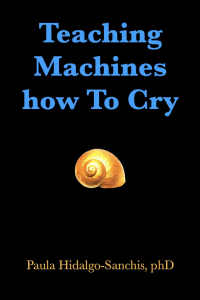Dr. Paula Hidalgo-Sanchis Interview Published on: 15, Mar 2024
 Can you share a bit about your journey and how living on four continents has influenced your perspective and work, especially in the realm of humanitarian efforts and sustainable development?
Can you share a bit about your journey and how living on four continents has influenced your perspective and work, especially in the realm of humanitarian efforts and sustainable development?
After having lived on four continents, I have many stories to tell…
What did you major in in college? What is one of your best memories from college?I have a PhD in Human Geography. I loved my time at the university because I love learning.
How do you deal with good and bad reviews? Have you ever reached out to a reader who wrote a review (good or bad)?To date, all reviews have been wonderful, and I am greatly enjoying hearing from readers.
How do you see the intersection between artificial intelligence and humanitarian efforts?There is a lot of good work done on the use of AI-based technologies to support humanitarian assistance. In my view, the main challenge with the use of AI in all fields is the governance of its ethical design and use.
Your debut novel, "Teaching Machines How to Cry," explores the ethical complexities and potentials of artificial intelligence. What inspired you to delve into this topic, and how has your background in humanitarian work and sustainable development informed your approach?I have worked in the field of AI for many years at UN Global Pulse (under the UN Secretary General Office). I was responsible for managing the development, testing, and deployment of AI prototypes to advance the work of the United Nations and its partners to tackle issues such as poverty, climate change, and conflict around the world.
Your novel seems to bridge the gap between your academic background in Human Geography and your experience in AI ethics. How did these two aspects of your life converge in the creation of "Teaching Machines How to Cry"?The concept of the ‘place’ in human geography is very relevant, and I think that is transmited in the novel.
In "Teaching Machines How to Cry," are there specific real-world events or scenarios that inspired elements of the narrative, or is the story more of a speculative exploration of AI's impact on society?I worked managing the development of AI prototypes based on Natural Language Processing (NLP) applications for many years. This work influenced the story greatly.
What advice do you have for aspiring writers who are interested in exploring complex and interdisciplinary themes, as you have done in your debut novel?My advice is for them to embrace the yuxtaposition of the thinker and the creative in them.
How do you engage with your readers? Do you actively seek and respond to feedback?I am constantly encouraging readers to share with me their feedback on the novel.
What advice do you have for aspiring authors, particularly those who want to explore themes related to technology, ethics, and sustainability in their work?To be inspired by the amazing work that is ongoing to develop AI-based technologies to foster sustainable development.
Living in Portugal with your two sons, how do your personal life and the cultural context of your surroundings influence your writing and perspectives, both in fiction and in your work on AI ethics?Living in Porto means that falling in love with the charming coastal city is inevitable. The iconic Ferreira Borges Market, the Palacio Da Bolsa, the Majestic Café, or the Saint Francis’s Church are some of the cities’ historical sites where the story takes place.
Given your extensive experience with the United Nations, what role do you see international organizations playing in shaping the ethical landscape of artificial intelligence on a global scale?The United Nations has a unique role as a conveyer, advocate, and facilitator of partnerships to shape the ethical landscape of AI on a global scale.
Looking ahead, do you have plans for future writing projects, and are there particular themes or topics that you are eager to explore in your upcoming works?I plan to continue sharing stories through novels, on topics that affect us all.
What has your AllAuthor experience been like so far? What are some highlights?Excellent!
Share Dr. Paula Hidalgo-Sanchis's interview
Paula Hidalgo-Sanchis is not just an author; she is a citizen of the world whose life experiences span four continents. Currently residing in Portugal with her two sons, Paula continues to weave together her diverse experiences and insights into narratives that challenge and inspire. Paula is a visionary whose words have the power to shape your understanding of the present and future.


